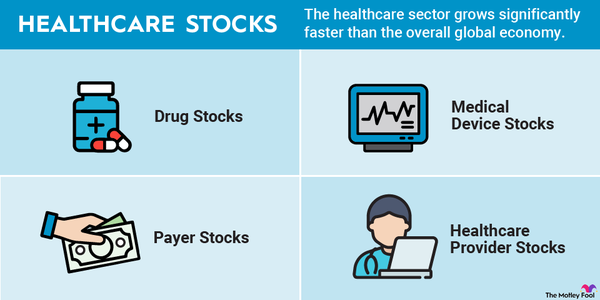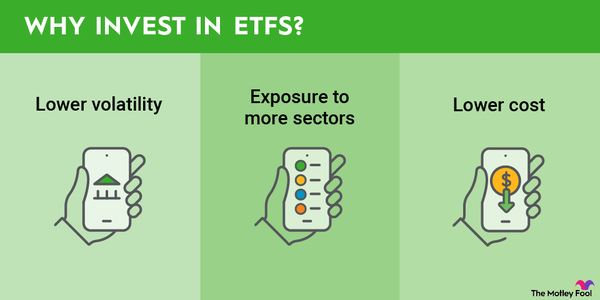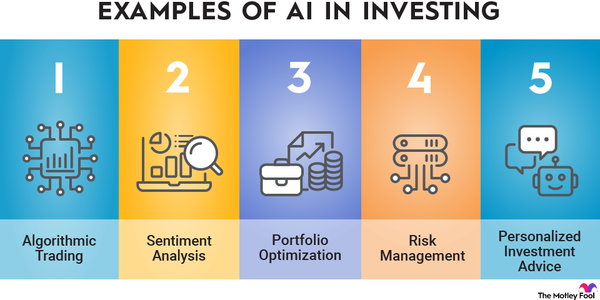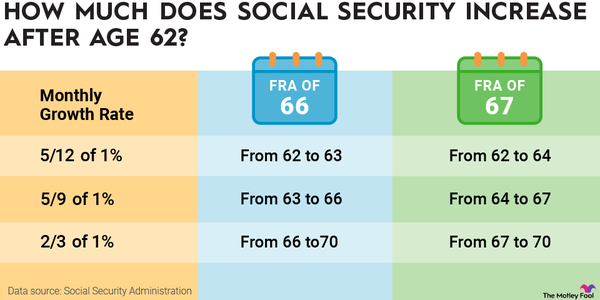More than 50,000 investment scams have been reported through the first half of 2024, costing consumers nearly $2.5 billion. That puts this year on pace with 2023, during which a record 111,000 investment scams were reported with losses totaling $4.8 billion.
Crypto scams are also on pace to match a record 2023. Through the first half of 2024, scammers have collected $679 million in cryptocurrency, making it the most lucrative payment method behind only bank transfers.
What is an investment scam?
Investment scams aim to get individuals or businesses to provide money -- often cryptocurrency -- for an investment that will allegedly generate large returns.
There are many types of investment scams, but they generally lure victims with promises of quick and large profits, only for victims to put up funds that are never seen again.
In this article, we use the terms "fraud" and "scam" interchangeably, because that's how the FTC reports their data.
Investment scam losses
Americans lost $2.5 billion to investment fraud and scams in the first half of 2024
Through the first half of 2024, Americans have lost $2.5 billion in investment fraud and scams through 52,000 reported cases. Among those cases, around 80% involved a financial loss.
The median loss for investment scam victims in the first half of 2024 was $9,000. The median investment scam loss in 2023 was $8,000.
Investment fraud has steadily increased across reported cases, median loss, and total losses over the past four years.
Investment scam statistics by age
Investment fraud reports and losses by age
Americans aged 30 to 39 reported the most investment scams through the first half of 2024: 5,781. That cost them $144 million, and the median amount lost was $4,127.
Americans between 30 and 70 are much more likely to fall victim to investment scams than are younger or older Americans. Americans in that age range are more likely to be active investors than younger or older Americans.
The median amount lost to investment scams rises significantly with age. The median loss for Americans hit by investment scams younger than 19 is $620. That rises to $7,000 for those 40 to 49 and $23,000 for victims over 80.
While median losses from investment scams rise with age, total losses peak in the 50-to-59-year-old group. They lost $236.5 million in the first half of 2024. Those 80 and older lost just $19.4 million despite having the largest median loss.
Crypto scam statistics
Cryptocurrency is the top payment method for investment scams and fraud
Crypto is the top payment method by far for investment scams. Victims of 11,000 investment scams paid scammers $375 million in cryptocurrency through the first half of 2024. That’s on pace with the last two quarters of 2023.
Investment scams accounted for 46% of all scams involving cryptocurrency, and 54% of the cryptocurrency scammers received in the first half of 2024 was from an investment scam, according to FTC data. That’s far more than any other category of scam.
Scammers try to use crypto to receive funds from victims because there are no reliable ways for victims to get their money back once it’s sent in the form of cryptocurrency. Investment scams have a natural tie to crypto, with some investors always looking for the next big cryptocurrency to invest in.
Americans lost $679 million to crypto fraud in the first half of 2024
Looking beyond investment scams, Americans lost $679 million to scammers via cryptocurrency in the first half of 2024. A quarter of all cash lost to scammers over that period was a result of a crypto transfer, behind only bank transfers.
Crypto as a preferred payment method for scammers came to prominence in 2021. In 2020, scammers extracted $130 million from victims via crypto. That grew to $746 million in 2021 and $1.4 billion in 2022. 2024 is on pace to net scammers a similar amount via crypto.
Investment scams and social media
Scammers are increasingly relying on social media to reach targets
Forty-five percent of investment scam victims in the first half of 2024 were contacted via social media, far more than any other type of contact method. Another 16% were contacted through a website or app.
The number of investment scam victims that reported social media to be their initial method of contact has grown from 4,889 in 2020 to 26,160 in 2023. In 2020, just 29% of investment scams started via social media.
How to spot a scam
How to spot a scam and how to report it
With investment scams on the rise, it’s important that the public knows how to spot and report a scam.
Investment scams come in many forms and are constantly changing to keep up with trends and current events. Cryptocurrency scams in particular are increasingly popular, and more scammers are using social media, websites, and apps to target the public.
To avoid getting scammed, follow a few rules of thumb recommended by the FTC:
- Be wary of an opportunity that seems too good to be true. If it is, it’s usually a scam.
- Do your research. Don't invest in something you don’t understand or haven’t heard of. If you’re approached about a company or cryptocurrency that’s new to you, the FTC recommends that you search for it online along with “scam,” “review,” or “complaint.”
- Avoid investment opportunities that require you to pay by cryptocurrency, wire transfer, or gift card. Doing so will make it extremely difficult if not impossible to get your money back.
If you’ve been targeted by a scam, make sure you report it at reportfraud.ftc.gov, even if you haven’t lost any money. If you've lost money as a result of an investment scam, reporting it is the best way to have a chance at recouping your losses.
Outside experts weigh in

Cristian Tiu, PhD
What signs should investors watch for that may indicate an investment or crypto scam?
There is a lot to say about both. In general, most crypto scams would involve sending payment to an address (do not if you do not know what that is with 100% certainty!), being directed to sites that will ask personal info (like passwords from Coinbase, etc. -- NEVER share passwords because no site randomly decides to "verify" them), do not pay for something from someone you do not know (unlike credit card transactions, you cannot dispute cryptocurrency transactions), do not send money/account info to get "verified" with the expectation you will receive something (that's a scam, most likely). Most of these scams have a cash version.
Don't invest in response to email from an unknown source, or by links from Twitter, etc.
Investment scams are another area entirely. But in general, when promised a hefty return, it is useful to ask yourself the question "what am I doing to deserve this money?" I mean, is capital really expensive to come by? Am I skilled at identifying the best investments and that is why I can get them for cheap? How do I contribute? If this answer is unclear, it's a scam.
In general, buy from reputable places (known brokerage firms, websites that are reputable), understand the risk (initial coin offerings can go to zero easily) and understand the product (do I need to maintain a margin account? How large?).
If someone realizes that they're being scammed, what should they do?
Police, FBI, or reportfraud.ftc.gov for crypto scams.
There was a huge spike in investment-related scams in 2020. Why do you think we saw such an increase in 2020, and do you anticipate a continuation in 2021 and beyond?
Everyone stayed home, including those who scam, so there was more time on their hands. Also, everyone had to overly rely on technology, so we all were more likely to read email, click on links etc.
I expect scams to continue, although perhaps at a lower rate. While we may be on our phones and computers less, software that allows snooping or launching ransomware attacks, etc. is more and more easily available on the dark net, so more and more thieves may decide to buy and use this software.
Who has a responsibility to educate consumers about these kinds of scams?
Consumers have the responsibility to educate themselves. They should not be afraid to ask questions, do their research, take free courses online and at universities. The government should sponsor and encourage such programs. Financial literacy, also, should be part of a person's credit score.
Anything else to add about investing scams?
Do not make the assumption that cryptocurrency payments are private. In fact, they can be undone, as it happened with a ransom paid recently.

Veljko Fotak
What signs should investors watch for that may indicate an investment or crypto scam?
The old adage --if it sounds too good to be true, it probably is -- fully applies here.
Generally, watch out for anyone who offers guarantees, especially in this market. Anyone "guaranteeing" that they will generate market beating returns is lying -- either to themselves or to their investors.
If someone realizes that they're being scammed, what should they do?
Contact the Consumer Financial Protection Bureau and submit a report to the Federal Trade Commission. Both have very neat websites with the ability to harvest reports by victims. And both offer plenty of resources and information on the most common scams and on what to do if one falls victim.
There was a huge spike in investment-related scams in 2020. Why do you think we saw such an increase in 2020, and do you anticipate a continuation in 2021 and beyond?
I do not believe there was a significant rise in the frequency of scams –- rather, there were market movements that revealed the scams. Truth is, scams are always there. But they are often revealed during times of market turmoil. As Warren Buffett famously said -- "Only when the tide goes out do you discover who's been swimming naked."
While I don't think the actual rate of scams is the main driver here, the influx of unsophisticated traders into markets might have moved the needle a bit -- let's just say the supply of scams has not necessarily increased, but the "demand" for them might have. Not that young, inexperienced traders are begging to be scammed -- no one wants to be the victim, of course. But the prevailing mentality among a certain group of investors who have become active for the first time during the pandemic is one of "big or bust." The reddit investor is not looking for safe, conservative, stable investments to fund their retirement. Rather, the goal is to find the next big thing that will offer lottery-like payoffs.
Clearly, that kind of mentality offers fertile grounds for scams. And let's be honest –- the current ethos among tech start-ups is "fake it until you make it." Sometimes the line between the genius, daring entrepreneurs we celebrate and the scammers we despise is a lot thinner than we would like to recognize.
Who has a responsibility to educate consumers about these kinds of scams?
First and foremost, it falls on educational institutions. Higher ed has a responsibility to impart technical knowledge—to give all students at least a basic understanding of how markets and financial instruments work. We live in a society in which we are all captive investors. There is no opt out here -- so everyone needs to have at least a basic working knowledge of personal finance.
Yet, even before that, primary education institutions have to sharpen their teaching of critical thinking skills. There is a parallel here between individuals unable to spot a blatant financial scam and individuals believing outlandish political claims or nonsensical "fake news" about the pandemic.
Regulators also have to play a role. Rational decision making is predicated on having access to timely and truthful information -- regulators must ensure that is the case.
Yet there is no silver bullet. It is impossible to protect investors from their own greed.
Anything else to add about investing scams?
I think one aspect that often gets lost is the moral argument. The sad reality is that we in higher education, especially in business schools, have not done enough to emphasize the moral side of business and investing.
People fall for scams, often, because of greed. Not always, of course -- there are plenty of blameless, innocent victims. Yet, oftentimes, scam targets are well aware of being involved with a scam. They just don't realize they are themselves the victims. Look at Bernie Madoff, the mind behind the largest Ponzi scheme in the history of financial markets. Many of his clients knew there was no legal, legitimate way to generate the returns he had been promising. Yet, they were satisfied by hints of insider contacts and trading on insider information. They were very happy to invest with Mr. Madoff even though they thought he was breaking the law. When they found out he was, indeed, breaking the law, but at their expense, they were outraged.
And, to be clear, I am not saying that applies to all of his victims -- far from it. But certainly the large, sophisticated investment funds who were playing along had enough skill and expertise to know something was off. They chose to ignore it. The best way to avoid being mugged is to walk on the bright side of the road.

Andrei Simonov
The proposed scam investments share one unique characteristic: they all appeal to greed. They promise unrealistically high rates of returns fast.
Many scammers explain that such returns are achieved because the company, investment, or cryptocoin invents or uses new technology or because "we live through the technology revolution." Often, scammers refer to the high performance of "similar" companies or instruments (like Bitcoin), hiding the downside or extreme volatility. For example, they can say that Etherium went from $200 to $4,000 in less than a year but ignore that it dropped 50% after reaching the peak.
How to prevent those scams from ruining the investors? For public companies, go to Edgar.gov and study the SEC filings. Pay attention to risk disclosures. For crypto-assets, unless you feel that you know the space, you should stay away. Most of the crypto assets are not connected with assets or future cash flows. In other words, it does not have any intrinsic value. The asset's value is determined by supply and demand driven by the expectation of the future price.
Dogecoin here is the case in point. The cryptocurrency that was created as a joke reach a capitalization of $85 billion. The best analogy for such assets is the price of rare objects like black tulip bulbs, baseball cards, or defunct Enron stock certificates.
It is important to note that at least some digital coins can be considered by SEC as securities offerings. It means that there should be some information on those assets in the public domain above what the creators put on their web pages. However, even in those cases, the number of violations is enormous and exceeds the violations in the normal IPO process by orders of
magnitude.
Bottom line: follow the Buffett rule and invest only in the assets you understand.

Josh White
What signs should investors watch for that may indicate an investment or crypto scam?
In penny stocks, crypto, or any potential investment, I would encourage investors to watch out for some well-known red flags of fraud. These include claims of high guaranteed returns or assurances that the investment carries little or no risk. Fraudulent promoters often use language such as "zero risk" or "guaranteed profit" in their sales pitch.
Crypto assets certainly have substantial risk, especially since their value is not tied to an underlying business model that generates cash flows that can be reported on a financial statement and audited by third parties. Even a well-accepted cryptocurrency like Bitcoin is subject to highly volatile returns. In the past 90 days, its price has dropped from a high of $63,000 in April to just over $34,000 as I type these notes. That is a drop of −46% in a very short period. Coins with a smaller market capitalization, lower following, and those that are more difficult to trade (e.g., not available on Coinbase), will likely experience even larger percentage changes in their price.
Other hallmarks of investment or crypto scams are unsolicited sales pitches, pressure to invest right away, claims that "everyone is buying it," and sellers that are unregistered. Investors can check an investment professional's background, registration status, and other information at this SEC website: www.Investor.gov. If it sounds too good to be true, it probably is.
I would encourage potential investors to exercise extreme caution when investing in crypto assets that have a very small market capitalization. Similar to penny stocks, these are preferred vehicles for conducting fraud because small changes in trading can result in large price swings. Fraudulent promoters can employ classic pump-and-dump schemes by purchasing a large amount of a token with a small market capitalization that is thinly traded (which we call illiquid).
My analysis of penny stocks shows that vulnerable investors—older, low income, low education—tend to do worse in promoted stocks. I suspect the same is true in crypto scams.
There was a huge spike in investment-related scams in 2020. Why do you think we saw such an increase in 2020, and do you anticipate a continuation in 2021 and beyond?
The spike in scams in 2020 is likely tied to other factors pushing up all asset prices (homes, stocks, collectibles, etc.). We had unprecedented government stimulus, which injected trillions of dollars into the economy. This stimulus resulted in an incredible amount of money stock in the economy. The graph of M1 Money Stock at the St. Louis Fed paints some of this picture—there were large amounts of cash placed in the hands of potential investors.
Couple this cash infusion with advances in technology and platforms that allow for trading in crypto assets, as well as mature social media platforms like Twitter where well-known celebrities were touting their support for crypto assets, and this makes for a great opportunity for scammers. I also believe that widely publicized news stories about enormous investment returns in meme stocks and other asset classes raised anxieties among individuals about missing out on investment returns. Scammers are constantly trying to exploit the so-called "fear of missing out" or "FOMO."
Who has a responsibility to educate consumers about these kinds of scams?
There are several regulators trying to enforce laws in this space, including the SEC, CFTC, IRS, Treasury's FinCEN, and even the Department of Justice. However, the decentralized nature of cryptocurrency makes them both appealing to investors and simultaneously challenging for regulators to enforce. So, the role of investor education is paramount for crypto assets.
The SEC regulates and enforces securities laws for start-ups trying to fund their business through initial coin offerings (ICOs). The SEC's Office of Investor Education (OIEA) has put out investor alerts on trading schemes and regularly issues alerts on investment fraud and scams.
The Commodity Futures Trading Commission (CFTC) plays a big role in regulating and enforcing crytpocurrencies, which are treated like commodities. The CFTC also has a dedicated website for crypto asset education, and provides advisories, primers/backgrounds, brochures, and even podcasts.
The Department of Justice conducts criminal investigations into wash trading or manipulation in this space. The Cyber-Digital Task Force published a nice report last year on their enforcement efforts in the crypto space. However, the DOJ seems to focus more on enforcement than education.
I have also read articles about the DOJ working with Treasury's FinCEN when banks are involved and the CFTC (who regulates derivative trading in Bitcoin and Ether) if the fraudsters use derivatives in their activities.
The Financial Industry Regulatory Authority (FINRA) also provides some crypto education resources.
Anything else to add about investing/crypto scams?
I would just reinforce to investors that crypto assets are highly speculative and, thus, investors should exercise extreme caution and conduct extensive research on both the asset and trading platform before making these investments. If an investor decides they want to invest in a crypto asset and can tolerate the extreme amounts of risk, I would be sure it is part of a well-diversified investment portfolio and consider limiting your holdings to a small fraction of that portfolio due to its return volatility.
Conclusion
Unfortunately, investment and cryptocurrency scams aren’t going anywhere. In fact, data over the last few years makes clear that those scams are becoming more prevalent and costly and that scammers are constantly evolving their tactics.
Remaining vigilant, doing your own research before investing, and avoiding overtures that require you to pay by cryptocurrency, wire, or gift card are surefire ways to avoid losses and remain on a path to financial success.
Sources
- Federal Trade Commission (2024). “The Big View: All Sentinel Reports.”
The Motley Fool has a disclosure policy.



































































